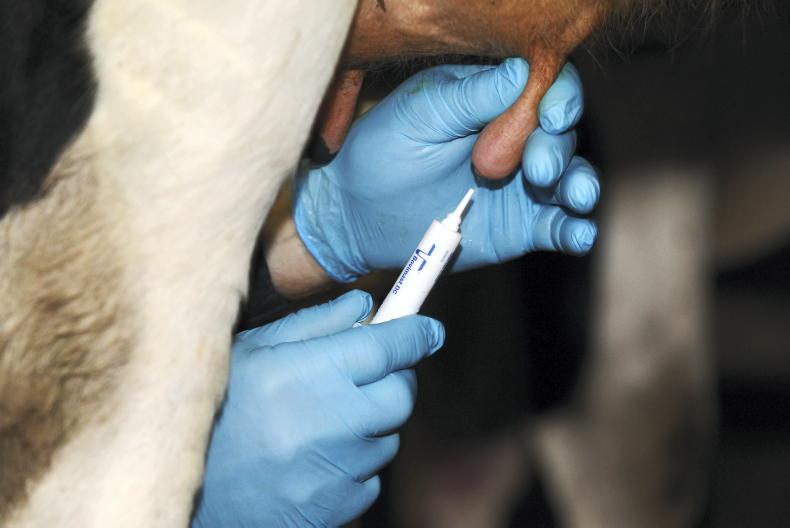Drying off
Milk supplies to co-ops have dropped considerably relative to last year. I think it’s a good thing that farmers are acting rationally and deciding that if the margin is too low, they are not going to the effort of producing milk.
Gimmicks offered by some co-ops, such as offering a rebate on already over-priced dairy ration have failed to entice farmers to keep milk production up.
I would expect that over the next fortnight, thousands of herds will be dried off completely.
Milk price is one obvious reason for the fall off in production, but weather has been horrendous, meaning grass hasn’t been part of the diet of many herds for a month or more and silage stocks are on the edge.
More importantly however, farmer morale is on the floor – so a longer dry period will be good for cows and people.
A word of caution on selective dry cow therapy. You must have really good information on the cows that you are planning to give sealer only to. Otherwise, the risk is that more antibiotics could end up being administered to milking cows.
There are herds that would have used a lot of teat sealant only in the past that are now going back using more antibiotics at drying off. Hygiene is critically important also.
There are no plans to prevent the use of antibiotics either at drying off or to milking cows. But they can only be given to cows that need it, and that’s where the decisions need to be made. Some farmers are asking if a sealer is necessary.
International evidence says it is, with some data to say that it reduces incidence by up to 25%. If cows can be dried off and put out to grass for two weeks, perhaps the benefits may be reduced, but that’s not an option for most farmers.
Youngstock
It has been a very challenging autumn for youngstock, with wet and relatively warm weather causing a lot of respiratory problems. Parasites like hoose and fluke are more prevalent this autumn also.
These are often the gateway for other diseases such as pneumonia to get a foothold, as the animals’ immunity is compromised while trying to fight the parasites.
A symptom of hoose/lungworm is a deep and husky cough, particularly after animals are moved. Faecal samples can be taken but are not always accurate for lungworm.
Fluke is probably a bigger issue than in previous years due to the wet autumn, so adult cows may need to be dosed this winter, even if they haven’t been dosed in the past.
Bulk tank milk samples will highlight if fluke is present in the herd. The best time to dose for all parasites is in the dry period.
Cashflow
Significant withdrawals have been taken out of bank accounts over the past weeks, as farmers and their companies pay the balance of last year’s tax and the preliminary tax for this year. This is certainly putting pressure on cash flow and really highlights that after everything is paid, including drawings, tax and debt repayments, very little surplus cash will be generated from farming in 2023.
Improving this situation for 2024 will mean refocusing on reducing costs and hoping for a higher milk price. Each of these issues will be discussed at length on Dairy Day on Thursday 23 November in Cork.






 This is a subscriber-only article
This is a subscriber-only article










SHARING OPTIONS: